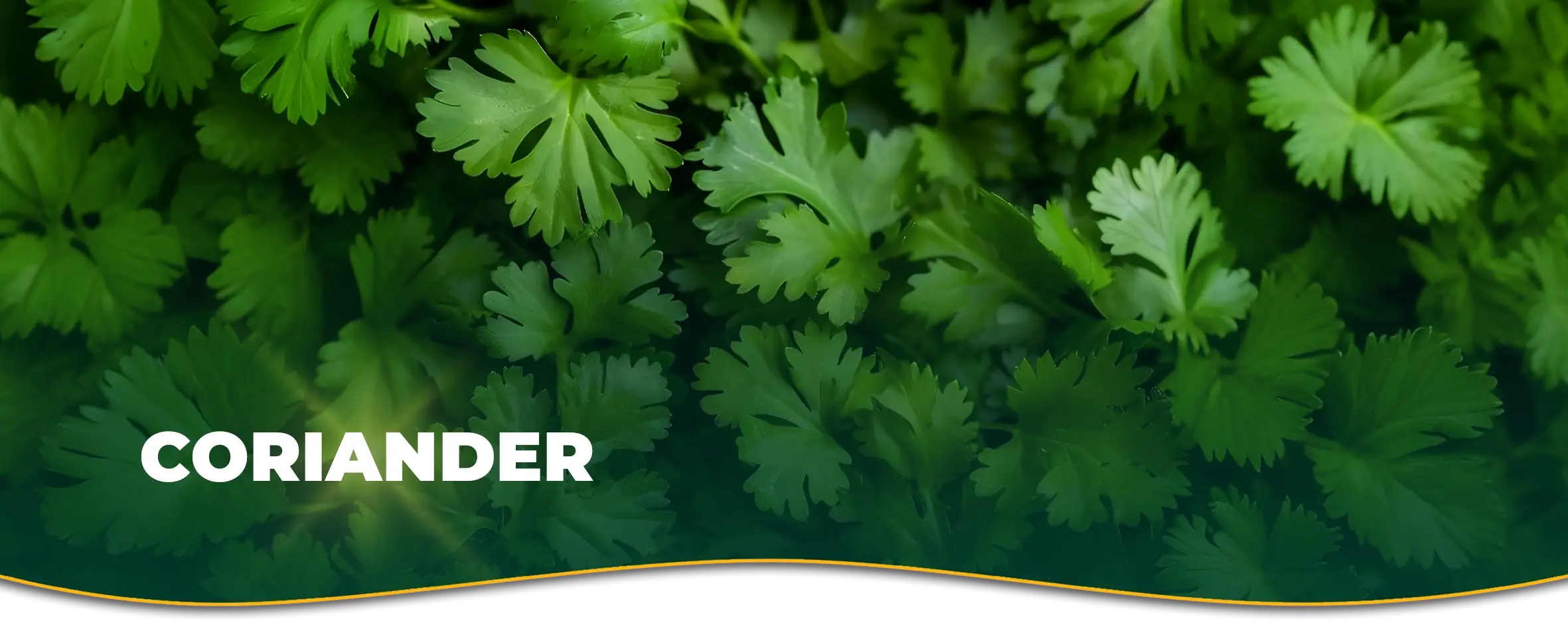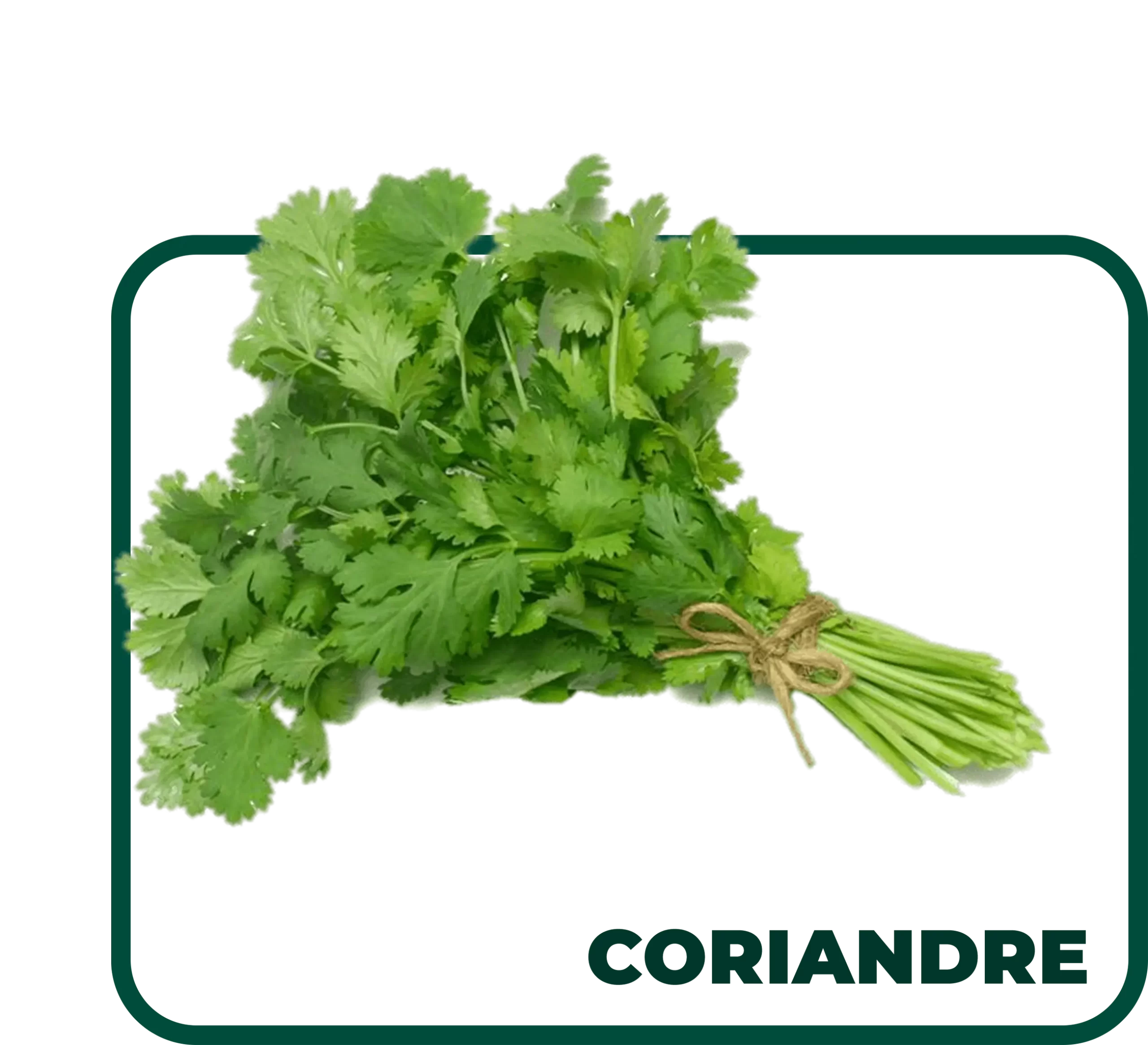
Coriander
Egyptian coriander, also known as cilantro in its leafy form, is an herb with bright green, delicate leaves and a distinct, fresh flavor. Coriander seeds, which are the dried fruit of the plant, are used as a spice with a warm, citrusy, and slightly nutty flavor. Both the leaves and seeds are used in cooking, lending a fresh, vibrant taste to a variety of dishes.

Coriander is typically planted in early spring or late summer. It thrives in well-drained soil and requires a sunny location. The herb grows quickly, with leaves ready for harvest in about 3 to 4 weeks. For seeds, allow the plant to mature fully before harvesting. Coriander is generally ready for seed harvest from late summer to early autumn.
Consuming Egyptian coriander can improve digestion, support immune function, and reduce inflammation. The antioxidants and essential oils in coriander help protect cells from oxidative stress and support overall digestive health. Vitamin C boosts the immune system and promotes healthy skin, while the vitamins and minerals contribute to overall well-being.
Coriander is rich in vitamins A, C, and K, as well as essential minerals such as potassium, calcium, and magnesium. The herb contains antioxidants and essential oils that may help reduce inflammation and support digestion. Coriander seeds are known for their digestive benefits, helping to alleviate bloating and gas. The plant also has antimicrobial properties, which can aid in maintaining a healthy digestive system.
